- Clone
- IP26 (See other available formats)
- Regulatory Status
- RUO
- Other Names
- α/β TCR, TCR α/β
- Isotype
- Mouse IgG1, κ
- Ave. Rating
- Submit a Review
- Product Citations
- publications
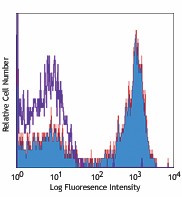
-

Human peripheral blood lymphocytes stained with biotinylated IP26, followed by Sav-PE
| Cat # | Size | Price | Save |
|---|---|---|---|
| 306703 | 25 µg | ¥18,260 | |
| 306704 | 100 µg | ¥41,360 |
The IP26 antibody reacts with a monomorphic determinant of the α/β T-cell receptor, which is expressed on greater than 95% of normal peripheral blood CD3+ T cells. The α/β TCR recognizes a peptide bound to MHC leading to T-cell activation.
Product DetailsProduct Details
- Verified Reactivity
- Human
- Antibody Type
- Monoclonal
- Host Species
- Mouse
- Formulation
- Phosphate-buffered solution, pH 7.2, containing 0.09% sodium azide.
- Preparation
- The antibody was purified by affinity chromatography, and conjugated with biotin under optimal conditions.
- Concentration
- 0.5 mg/ml
- Storage & Handling
- The antibody solution should be stored undiluted between 2°C and 8°C. Do not freeze.
- Application
-
FC - Quality tested
- Recommended Usage
-
Each lot of this antibody is quality control tested by immunofluorescent staining with flow cytometric analysis. For flow cytometric staining, the suggested use of this reagent is ≤ 0.5 µg per 106 cells in 100 µl volume or 100 µl of whole blood. It is recommended that the reagent be titrated for optimal performance for each application.
- Application Notes
-
Additional reported applications (for the relevant formats) include: T cell activation. When co-staining with anti-CD3, we recommend using clone UCHT1, since we have confirmed that IP26 does not compete with this clone. Other anti-CD3 clones may compete out the binding of IP26.
-
Application References
(PubMed link indicates BioLegend citation) - Product Citations
-
- RRID
-
AB_314629 (BioLegend Cat. No. 306703)
AB_314632 (BioLegend Cat. No. 306704)
Antigen Details
- Structure
- Ig superfamily, with CD3 forms CD3/TCR complex
- Distribution
-
T cells, thymocytes
- Function
- Antigen recognition, T cell activation
- Ligand/Receptor
- Peptide bound to MHC
- Cell Type
- T cells, Thymocytes, Tregs
- Biology Area
- Adaptive Immunity, Immunology
- Molecular Family
- TCRs
- Antigen References
-
1. Marchalonis J, et al. 2002. J. Mol. Recognit. 15:260.
- Gene ID
- 6955 View all products for this Gene ID 6957 View all products for this Gene ID
- UniProt
- View information about TCR alpha/beta on UniProt.org
Related FAQs
- How many biotin molecules are per antibody structure?
- We don't routinely measure the number of biotins with our antibody products but the number of biotin molecules range from 3-6 molecules per antibody.
Other Formats
View All TCR α/β Reagents Request Custom ConjugationCustomers Also Purchased
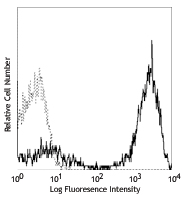
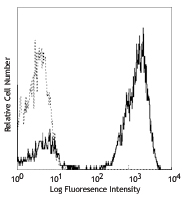
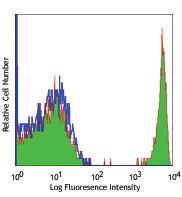
Compare Data Across All Formats
This data display is provided for general comparisons between formats.
Your actual data may vary due to variations in samples, target cells, instruments and their settings, staining conditions, and other factors.
If you need assistance with selecting the best format contact our expert technical support team.
-
Biotin anti-human TCR α/β
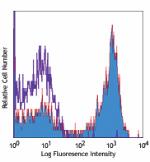
Human peripheral blood lymphocytes stained with biotinylated... -
FITC anti-human TCR α/β
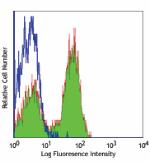
Human peripheral blood lymphocytes stained with IP26 FITC -
PE anti-human α/β T Cell Receptor
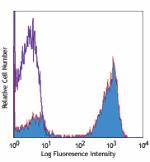
Human peripheral blood lymphocytes stained with IP26 PE -
PE/Cyanine5 anti-human TCR α/β
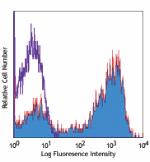
Human peripheral blood lymphocytes stained with IP26 PE/Cyan... -
Purified anti-human TCR α/β
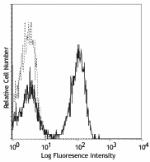
Human peripheral blood lymphocytes stained with purified IP2... -
PE/Cyanine7 anti-human TCR α/β

Human peripheral blood lymphocytes stained with CD19 (clone ... -
Alexa Fluor® 488 anti-human TCR α/β
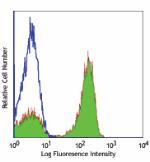
Human peripheral blood lymphocytes stained with IP26 Alexa F... -
Alexa Fluor® 647 anti-human TCR α/β
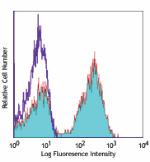
Human peripheral blood lymphocytes stained with IP26 Alexa F... -
Pacific Blue™ anti-human TCR α/β
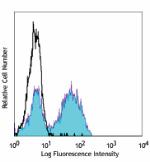
Human peripheral blood lymphocytes stained with IP26 Pacific... -
APC anti-human TCR α/β
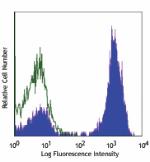
Human peripheral blood lymphocytes stained with IP26 APC -
Brilliant Violet 421™ anti-human TCR α/β
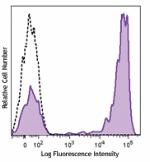
Human peripheral blood lymphocytes were stained with anti-hu... -
PerCP/Cyanine5.5 anti-human TCR α/β
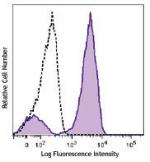
Human peripheral blood lymphocytes were stained with anti-hu... -
PE/Dazzle™ 594 anti-human TCR α/β
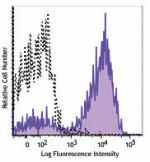
Human peripheral blood lymphocytes were stained with anti-hu... -
APC/Cyanine7 anti-human TCR α/β
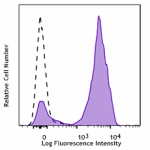
Human peripheral blood lymphocytes were stained with TCR a/ß... -
Alexa Fluor® 700 anti-human TCR α/β
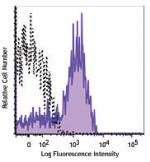
Human peripheral blood lymphocytes were stained with anti-hu... -
Brilliant Violet 510™ anti-human TCR α/β
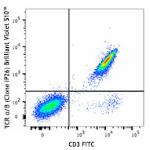
Human peripheral blood lymphocytes were stained with CD3 FIT... 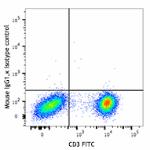
-
APC/Fire™ 750 anti-human TCR α/β
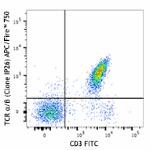
Human peripheral blood lymphocytes were stained with CD3 FIT... 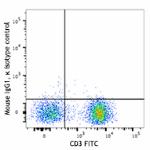
-
Brilliant Violet 605™ anti-human TCR α/β
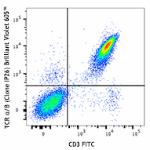
Human peripheral blood lymphocytes were stained with CD3 FIT... 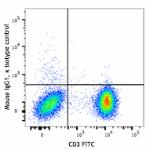
-
TotalSeq™-A0224 anti-human TCR α/β
-
Brilliant Violet 711™ anti-human TCR α/β
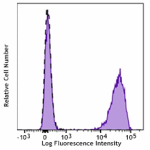
Human peripheral blood lymphocytes were stained with anti-hu... -
Brilliant Violet 785™ anti-human TCR α/β
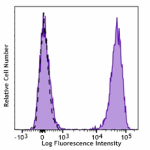
Human peripheral blood lymphocytes were stained with anti-hu... -
TotalSeq™-C0224 anti-human TCR α/β
-
Brilliant Violet 750™ anti-human TCR α/β
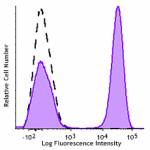
Human peripheral blood lymphocytes were stained with TCRα/β ... -
TotalSeq™-B0224 anti-human TCR α/β
-
PE anti-human TCR α/β

Typical results from human peripheral blood lymphocytes stai... -
APC/Fire™ 810 anti-human TCR α/β

Human peripheral blood lymphocytes were stained with anti-hu... -
TotalSeq™-D0224 anti-human TCR α/β
-
GMP PE anti-human TCR α/β
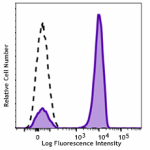
Typical results from human peripheral blood lymphocytes stai... -
Spark Red™ 718 anti-human TCR α/β (Flexi-Fluor™)
-
Brilliant Violet 650™ anti-human TCR α/β

Human peripheral blood lymphocytes were stained with anti-hu... -
FITC anti-human TCR α/β

Typical results from human peripheral blood lymphocytes stai... -
APC anti-human TCR α/β

Typical results from human peripheral blood lymphocytes stai...






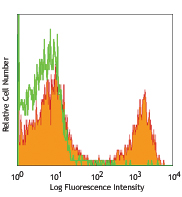



Follow Us